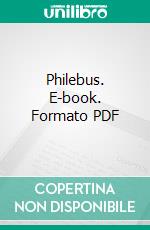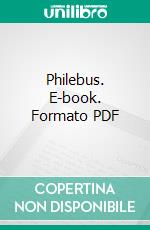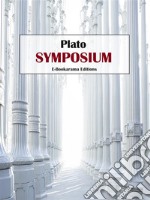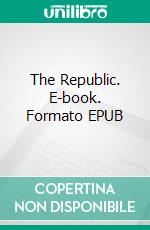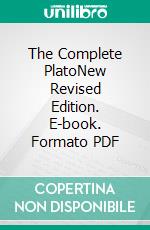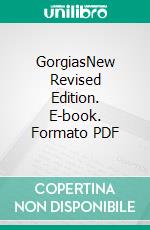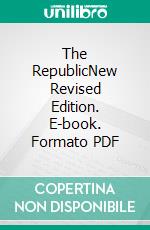Philebus. E-book. Formato PDF - 9788834196861
di Plato
edito da IONLINESHOPPING.COM , 2019
Formato: PDF - Protezione: nessuna
The Philebus, is a Socratic dialogue written in the 4th century BC by Plato. Besides Socrates (the main speaker) the other interlocutors are Philebus and Protarchus. Philebus, who advocates the life of physical pleasure (hedonism), hardly participates, and his position is instead defended by Protarchus, who learnt argumentation from Sophists. Socrates proposes there are higher pleasures (such as those of the mind) as well as lower ones, and asks if the best life isn't one that optimally mixes both.
Manuscripts of the work give it the subtitle "peri hedones, ethikos" implying that its topic is "concerning pleasure" and it is a work on ethics — that is, the question of what way of life is best. However "there are large parts in the dialogue that deal with dialectics and ontology but have nothing to do with pleasure and ethics, or if so, only indirectly".
It has been proposed that the work was composed between 360 and 347 BC, and that it is among the last of the late dialogues of Plato, many of which do not figure Socrates as the main speaking character. The dialogue is generally considered to contain less humor than earlier dialogues, and to emphasize philosophy and speculation over drama and poetry.
Commentators such as Friedrich Schleiermacher have noted that "the initial question is by no means the only and perhaps not even the main tendency of the conversation" and Paul Friedländer notes further that the dialogue goes beyond not only the "simple question" but also its "simple answer (that the truly good and perfect is above both reason and pleasure, but thought and intelligence are incomparably closer to perfection than pleasure and enjoyment can ever be)".
Manuscripts of the work give it the subtitle "peri hedones, ethikos" implying that its topic is "concerning pleasure" and it is a work on ethics — that is, the question of what way of life is best. However "there are large parts in the dialogue that deal with dialectics and ontology but have nothing to do with pleasure and ethics, or if so, only indirectly".
It has been proposed that the work was composed between 360 and 347 BC, and that it is among the last of the late dialogues of Plato, many of which do not figure Socrates as the main speaking character. The dialogue is generally considered to contain less humor than earlier dialogues, and to emphasize philosophy and speculation over drama and poetry.
Commentators such as Friedrich Schleiermacher have noted that "the initial question is by no means the only and perhaps not even the main tendency of the conversation" and Paul Friedländer notes further that the dialogue goes beyond not only the "simple question" but also its "simple answer (that the truly good and perfect is above both reason and pleasure, but thought and intelligence are incomparably closer to perfection than pleasure and enjoyment can ever be)".
Ean
9788834196861
Titolo
Philebus. E-book. Formato PDF
Autore
Editore
Data Pubblicazione
2019
Formato
PDF
Protezione
nessuna
Punti Accumulabili
